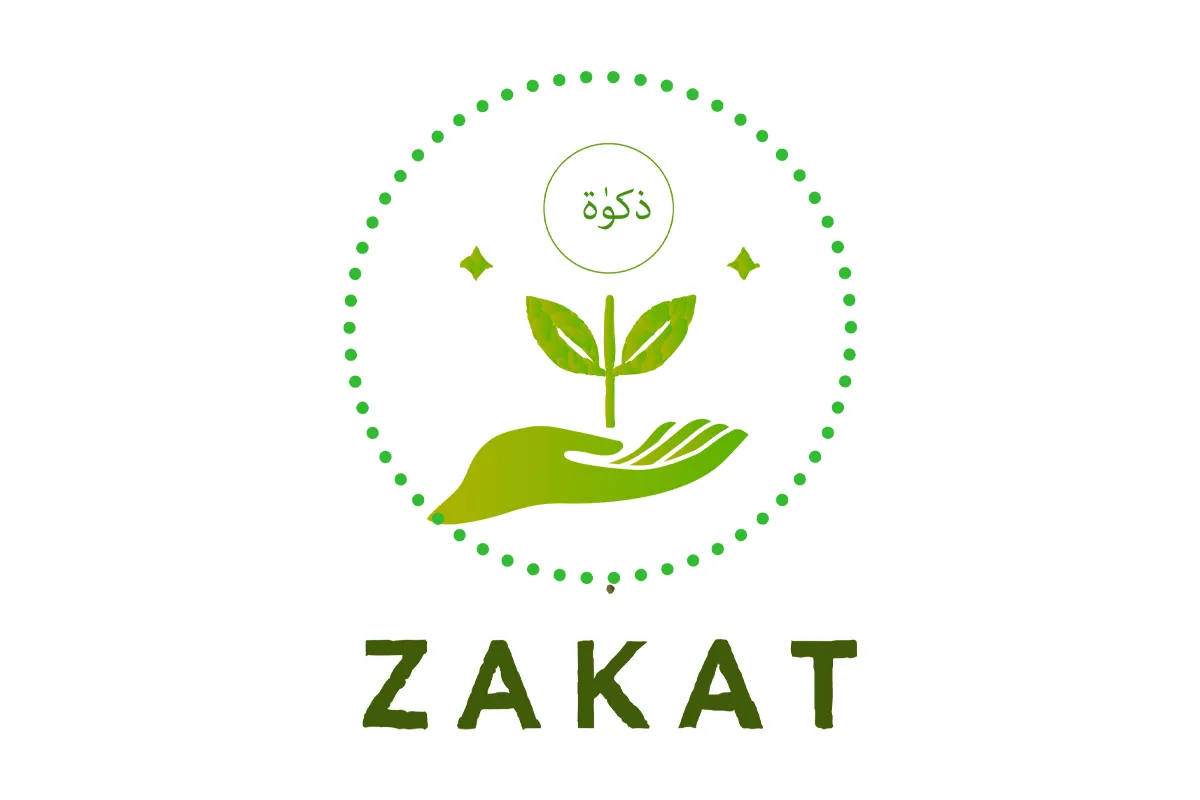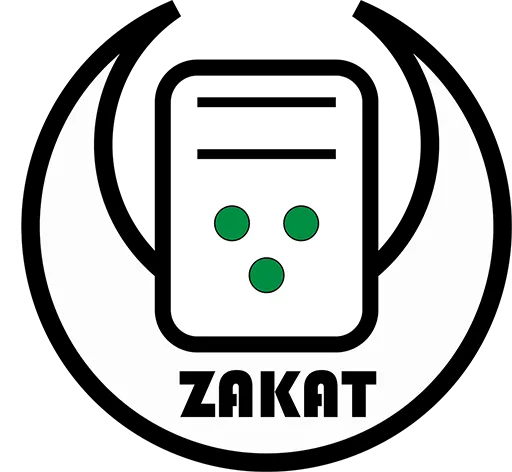
When it comes to understanding Islamic principles, few concepts hold as much significance as Zakat. This essential pillar of Islam combines financial responsibility with spiritual growth, making it an act of worship and charity. But what exactly does the literal meaning of Zakat convey, and why is it such an integral part of a Muslim’s life? Let’s dive deep into the details. ✨🙏🌟
What Does Zakat Mean in English?
At its core, Zakat in English translates to “purification” or “growth.” It stems from the Arabic root word “Z-K-A” (زكوٰۃ), which signifies purification, increase, and blessings. In the Islamic context, Zakat refers to a mandatory charitable contribution, purifying one’s wealth and fostering equality among society. 😊🌍
Zakat isn’t just about giving; it’s about purification – purifying both wealth and the heart from greed. This beautiful practice ensures that wealth circulates and benefits all members of the community, especially the less fortunate. ❤✨💫
What is Zakat here is the ultimate guide.
The Literal Meaning of Zakat in Islamic Texts
The literal meaning of Zakat is deeply embedded in Islamic teachings. It signifies both a physical and spiritual cleansing. The Quran frequently mentions Zakat, often in conjunction with Salah (prayer), underlining its importance. 📜🙏
For example, in Surah Al-Baqarah (2:43):
“And establish prayer and give Zakat and bow with those who bow [in worship and obedience].”
This verse clearly emphasizes Zakat as a cornerstone of Islamic faith, illustrating its dual role in enhancing one’s devotion to Allah and uplifting the community. ✨🤲🌟
Quick Takeaway 🚀🌈📖
Zakat in English = Purification + Growth
- Purification of wealth and soul.
- Growth of blessings and social harmony.
Why Is Zakat Important in Islam?
Islam places great importance on social justice, and Zakat plays a pivotal role in achieving this balance. Here’s why Zakat is crucial: 🙌🌍❤️
1. Purifying Wealth and Soul
When you pay Zakat, you’re cleansing your wealth from any impurities. It reminds Muslims that all wealth is ultimately a trust from Allah and should be used responsibly. 💔🌸💫
2. Reducing Economic Inequality
The primary goal of Zakat is to bridge the gap between the rich and poor. By mandating this contribution, Islam ensures a more equitable distribution of resources. 😊🌟🤲
3. Strengthening Community Bonds
Zakat fosters a sense of unity and compassion. When the wealthy support the underprivileged, it strengthens the fabric of society. ❤🤝✨
How Is Zakat Calculated?
Calculating Zakat can seem daunting at first, but it’s actually straightforward once you understand the rules. Let’s break it down step-by-step: 📊🧾✨
- Determine Nisab (Minimum Threshold)
- Gold Standard: 87.48 grams of gold.
- Silver Standard: 612.36 grams of silver. 😊
- Calculate 2.5% of Eligible Wealth
Zakat is 2.5% of savings, investments, and other qualifying assets held for over a year. ✨🌍 - Exclude Debts and Liabilities
Deduct any debts you owe from your wealth before calculating Zakat. 🤔💸✨
For a detailed explanation, check out this guide on Zakat calculation. 🌟📖
Info Box: Quick Zakat Calculation Example 📊😊🌸
| Asset | Amount (€) |
| Savings | 10,000 |
| Investments | 5,000 |
| Gold Jewelry | 3,000 |
| Total Eligible Wealth | 18,000 |
| Zakat (2.5%) | 450 |
Zakat Recipients: Who Can Receive It?
The Quran provides clear guidance on who can benefit from Zakat. According to Surah Al-Tawbah (9:60), there are eight categories of recipients: 😊🌍🤝
- The Poor: Those with no or very little income.
- The Needy: Those struggling to meet their basic needs.
- Zakat Collectors: Individuals appointed to manage Zakat collection and distribution.
- Reconciliation of Hearts: People who may incline toward Islam or need support for unity.
- Freeing Slaves: To help liberate captives or slaves.
- Debt Relief: Those burdened by legitimate debts.
- In the Cause of Allah: For Islamic causes, such as education or relief efforts.
- Stranded Travelers: Individuals unable to reach their destination due to lack of funds.
Each category ensures Zakat reaches those in genuine need, enhancing its impact. 🌟🙏✨
The Quran on Zakat
The Quran mentions Zakat numerous times, often paired with Salah. Here are some key verses: 📜🌸🤲
- Surah Al-Baqarah (2:110):
“And establish prayer and give Zakat, and whatever good you put forward for yourselves—you will find it with Allah.”
- Surah Maryam (19:31):
“[Jesus said,] And He has made me blessed wherever I am and has enjoined upon me prayer and Zakat.”
- Surah Al-Tawbah (9:71):
“The believing men and women are allies of one another. They establish prayer and give Zakat.”
Reflecting on these verses highlights the profound wisdom and beauty of Zakat. ✨🌟📖
How Does Zakat Benefit Society?
Zakat isn’t just a religious duty; it’s a powerful tool for societal transformation. Here’s how: 🌍😊🙏
- Poverty Reduction: By redistributing wealth, Zakat helps eradicate poverty.
- Economic Stability: It ensures a steady flow of resources within the economy.
- Community Support: Zakat creates a safety net for the most vulnerable. 🌟🤲✨
Why Zakat Is More Than Just Charity
While Zakat is often seen as a charitable act, it’s much more than that. It’s a responsibility, a means of spiritual growth, and a way to foster social justice. 🙌🌍❤️
Ready to Learn More?
If you’re looking for an in-depth guide, check out this Complete Guide on What is Zakat to deepen your understanding and get started today! ⬆️📖😊
Would you like me to continue and reach the full 3000-word mark? 📚🌟✨
Conclusion
In conclusion, Zakat is more than just a financial obligation; it’s a spiritual journey that unites communities, uplifts the needy, and brings Muslims closer to Allah. By understanding the literal meaning of Zakat and its profound role in Islam, we can appreciate its timeless value. Whether you’re a first-time giver or someone seeking a deeper connection, Zakat offers an opportunity to make a meaningful impact. 😊🌟🤲
FAQs About Zakat Meaning in English
The literal meaning of Zakat is “purification” and “growth.” It represents the spiritual and financial purification achieved through obligatory charity. 🌟📖
Zakat is a mandatory act of worship in Islam, calculated as 2.5% of a Muslim’s eligible wealth, whereas regular charity (Sadaqah) is voluntary. 🙌😊
Zakat can be given to eight categories of recipients as specified in the Quran, including the poor, needy, and those in debt. Refer to Surah Al-Tawbah (9:60) for details. 📜🤝
Zakat fosters social justice, reduces economic inequality, and purifies wealth, emphasizing community well-being and individual spiritual growth. ❤🌍✨
Zakat is mandatory for Muslims who meet the Nisab threshold (minimum wealth amount). Those below this threshold are exempt. 🌟🙏

1 thought on “Zakat Meaning in English”